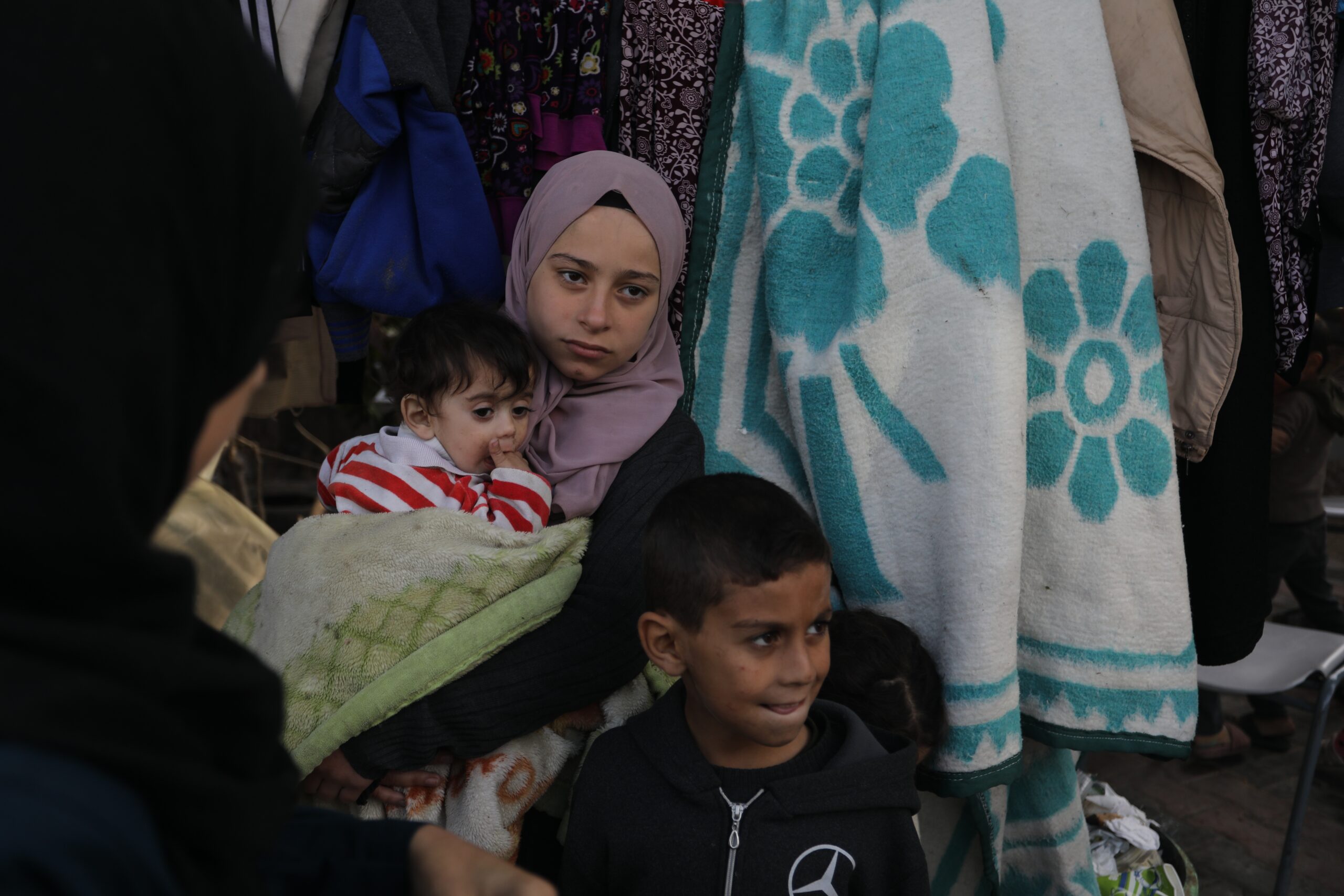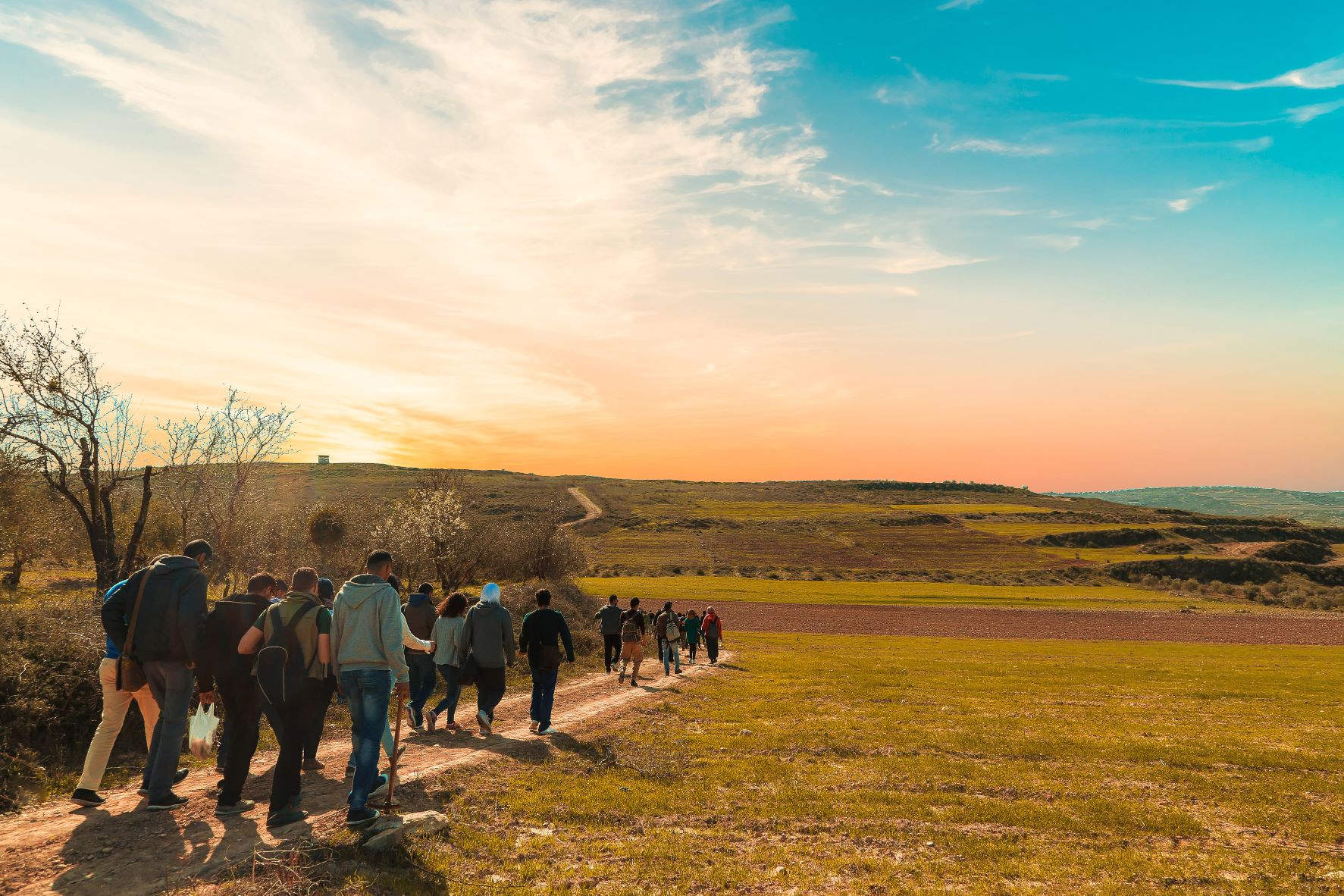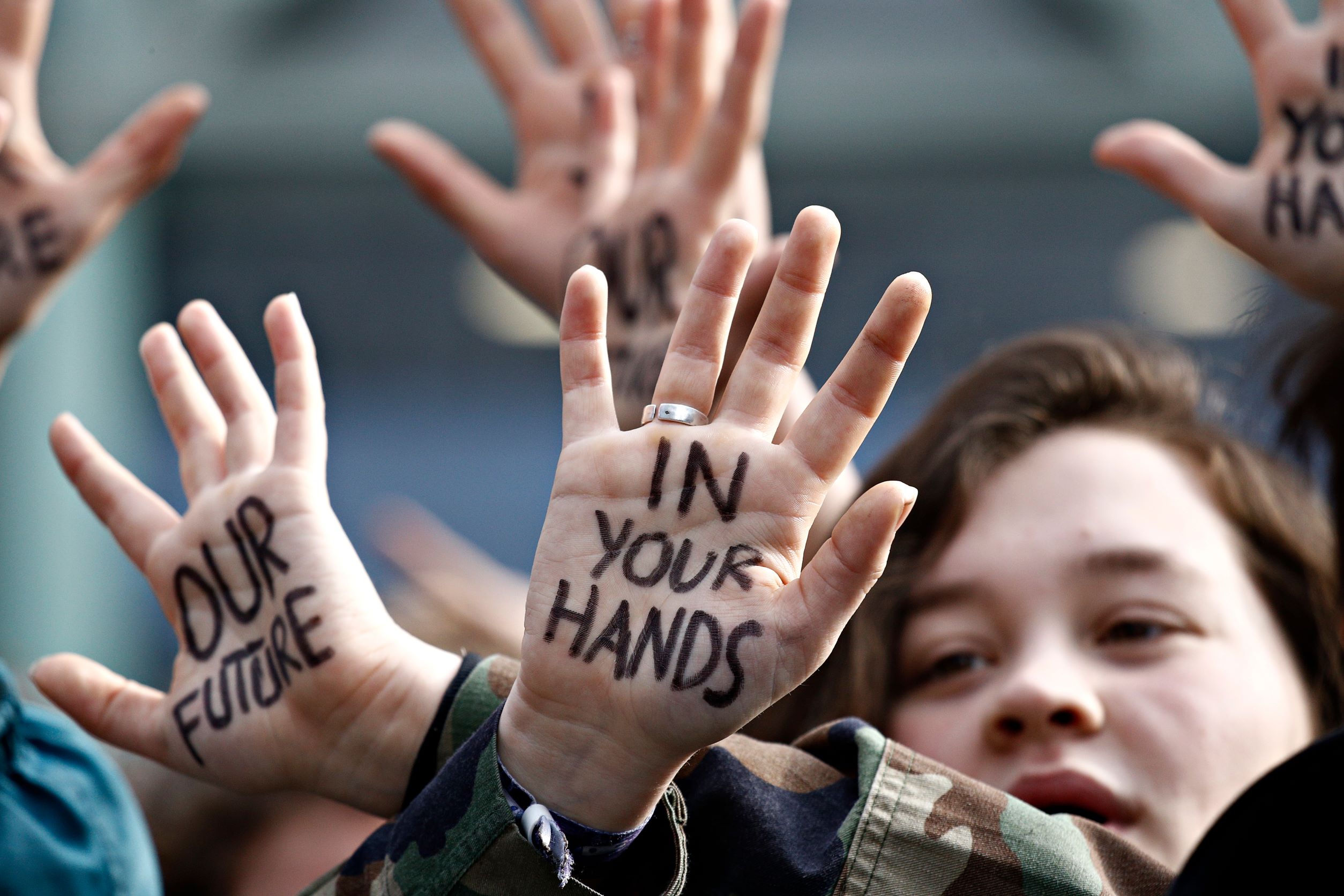Originally written for Haaretz by Mahmoud Jabari and Dahlia Scheindlin.
As the Israel-Hamas war drags on, the list of “day-after” scenarios for Gaza is prompting renewed ideas about resolving the larger Israeli-Palestinian conflict. But there’s a core condition for any such plan: besides an end to the war, any type of peace will require a radical change of leadership among Israelis and Palestinians.
Israel will have to wait for its government to fall and elect someone better than Netanyahu – it’s a low bar, and a different article.
For Palestinians, the concept of governance itself is in shambles, divided for 17 years between Fatah and Hamas; both loathed for much of that time by Palestinians for corruption, authoritarian rule and failure to achieve freedom.
It’s not clear how they will choose a government with a decrepit Palestinian Authority clinging to power in the West Bank, mumbling about reforms, while most Gazans are displaced or dead. Hamas did get a boost in surveys following October 7, like a rally round the flag effect, but after most wars, their support ebbs again, and this one is like no other war. Elections in this chaos seem impossible.
Outsiders, including the United States, the EU and key Arab states, may have ideas about the future of Palestinian leadership, but it’s Palestinians who must ultimately decide. Many are already having that conversation far outside the sclerotic political system. We are writing this article to open a window onto the robust ideas coming from Palestinians themselves.
Three such ideas, in particular, are essential for building a better Palestinian leadership in the future while avoiding mistakes of the past.
No credibility without authority
For a decade following the Oslo agreements, Palestinian Authority leaders failed to end the occupation or reach independence through diplomacy. That leadership failure, alongside authoritarian practice and corruption, ruined its credibility and led to the Second Intifada, then contributed to Hamas’ victory in 2006 – the very outcomes Israel most feared.
The irony is that for Israel (and, too often, for other powerful Western countries), the Palestinian Authority exists primarily to meet Israeli security imperatives. Israeli security became the sole measure of PA legitimacy rather than good governance. Israel and Western countries were content to see the PA sacrifice good governance, transparent institutions, anti-corruption and democratic reforms in the name of stability.
Palestinians felt this more than anyone; they see their leaders, even local mayors, as subservient to ultimate Israeli rule. Governing officials seem powerless in practice. But Palestinians also know that when these same officials need self-serving personal help, cooperating with occupation authorities for privileges seems fine.
Instead of viewing the PA as the foundation of governance for a future state, it was treated as a beefy, armed security guard – or for Palestinians, yes-man leadership. Palestinians we spoke to railed against the lack of transparency, nepotism and force that passes for governance. By September 2023, 87 percent of Palestinians believed there was corruption in PA institutions (72 percent say the same of Hamas).

Installing puppet leaders in Gaza or anywhere else is a sure means to alienate those who could be a young guard in Palestinian politics. Some will stay away from politics altogether. Others channel their frustration into violence.
Palestinian voters must also know that their electoral choices matter; too many feel that the U.S. and the West decide their outcome in practice. That, too, is alienating; Hamada Jaber, a 40-year-old political analyst from Ramallah, said he wouldn’t go into politics under these circumstances: “It’s disgusting for the majority of Palestinians how the West and the U.S. think they can impose things on the Palestinian people.”
The Palestinian analyst Zaha Hassan at the Carnegie Endowment for International Peace wrote that Palestinians are even wary of calls to reform the PA because “Various external actors with blunt tools for manipulating Palestinian outcomes have been seen to weigh in, even at the expense of purported democratic values.”
This is not to ignore risks. What if Hamas had actually formed the government after the 2006 elections? After all, polls indicate Hamas could win again. But times have changed.
While respecting Palestinian political diversity means including Hamas in politics, its victory is not inevitable: in West Bank municipal elections in 2022, nearly two-thirds of West Bank Palestinians chose independent candidates. In any scenario, elections will not be held immediately, and by that time, the pulse on the Palestinian street will have evolved; people will be focused on new challenges by then.
But the perception that outsiders have ultimate control, nurturing a compliant leadership that is resented by Palestinians, is stifling genuine political renewal in Palestine.
Conversely, advancing a political horizon for true independence could motivate fresh faces to join Palestinian politics. “If there’s a new environment like this” – referring to a genuine shot at independence – “definitely yes,” Jaber said, specifying that “free elections” and “equal opportunity” to participate would be among the motivating factors.
A more vibrant and compelling political life might not have ideal outcomes for Israel in the short term, but it can channel political demands into the process rather than into violence.

Depersonalize it
Prioritizing individuals over the system is the wrong path to good governance. Just as a genuine political process matters more than the outcome, the political system should matter more than individuals.When Yasser Arafat died in 2004, the transition of power went smoothly “because we simply followed the Palestinian Basic Law,” said Jaber. The speaker of the parliament became the interim president, and elections were held two months later, in January 2005, as stipulated. The election of Mahmoud Abbas marked a peaceful change in Palestinian political life.
But over time, Abbas centralized power to his small coterie of cronies. He established a contentious constitutional court, which ruled in 2018 to dissolve the parliament, and he failed to organize new parliamentary elections within six months as his court decreed, or ever. His tightened grip once again demotivated new political engagement and makes the identity of the next leader that much more important.
By now, the PA is like other Arab dictatorships, Jaber said, but worse: “At least [those countries] have good living conditions, but in our case, [we have] no rights, no democracy and also no good conditions of life or political horizon.”
It’s dangerous to hang everything on an individual. Still, foreign policymakers sit around debating a very short list of names associated with Fatah – mostly Marwan Barghouti, the Palestinian figurehead jailed in Israel for over 20 years who tops Palestinian polls, or Mohammed Dahlan, Hussein al-Sheikh or Jibril Rajoub, who do not.
These figures have name recognition and can govern by muscle, to be sure, but without earning public legitimacy – including trust in the systems of governance – they could evolve into new versions of the ineffective leadership like today.
Day-after plans should focus on strengthening good processes and better governance instead. International policymakers should stop presuming that Palestinians will be led by a strongman and assume that Palestinian leaders will earn credibility through good governance, checks and balances and functional institutions. Palestinians deserve more than the soft prejudice of low democratic expectations.
After all, this is a society that displays avid engagement in democratic processes: Zaha Hassan noted that 90 percent of eligible voters registered for the aborted 2021 elections, and Jaber observed that no less than 36 parties would have competed. Democratic instincts are a terrible thing to waste, and with a geriatric leadership, motivating young political activists would surely inspire others.
If people trust the process, they will hold that government accountable. Such a government will be under greater pressure to deliver.

Security: holistic, mutual and not just force
Israel’s reliance solely on military control over Palestinians has been a failure. Gaza festered under Israel’s blockade and effective control from the perimeters, with no hope or horizon for political resolution of the conflict – the result was violent retribution culminating in the catastrophic attack of October 7.Meanwhile, during 2022 and 2023, the West Bank was becoming more deadly than at any time since the Second Intifada, and despite 694 checkpoints and roadblocks, an eruption is still closer than ever.
And with Palestinians dying at a far higher rate than Israelis, it should be clear that security is a mutual need, not just an Israeli demand.
But social security is essential, too. Dire conditions in Gaza and soaring unemployment in the West Bank (made worse by the war) spotlights the need for a government that can deliver on health, education, public administration, infrastructure – instead of 80 percent of Gazans depending on financial aid even prior to the war.
Ahmed Fouad Alkhatib, a Palestinian writer and analyst from Gaza who lives in the U.S., is an unsparing critic of Hamas, Fatah and Israel. He proposes two “parallel systems” of future Palestinian governance, separating daily-life concerns from the national cause. One system would be “heavily focused on driving the national project for statehood, liberation and self-determination through political, diplomatic and nonviolent means.”
The other would focus on building institutions and providing services such as education, health care and public safety. If the political aims flounder, at least the separate professional government will be protected to “take care of the needs of their people even if there is political stagnation” on the diplomatic front.
The future of Palestinian leadership lies in rallying internal support for a vision of empowerment, one that prioritizes ending the occupation and advancing an independent state by rejecting violence and committing to agreements; advances civil liberties and good governance, and provides good public policies and economic transformation. A leadership should be accountable, inclusive and representative, not alienating.
But no political horizon can wait for all that. Building true leadership hinges on hope that there’s enough of Palestinian society and land left to govern when the war is over.



